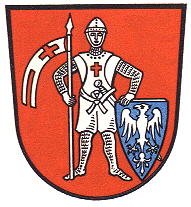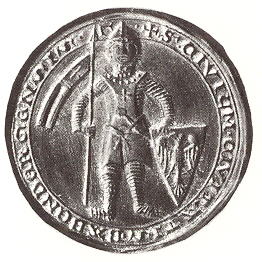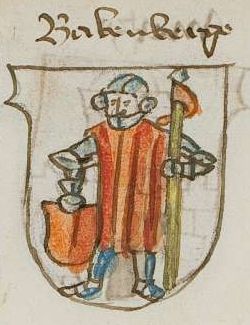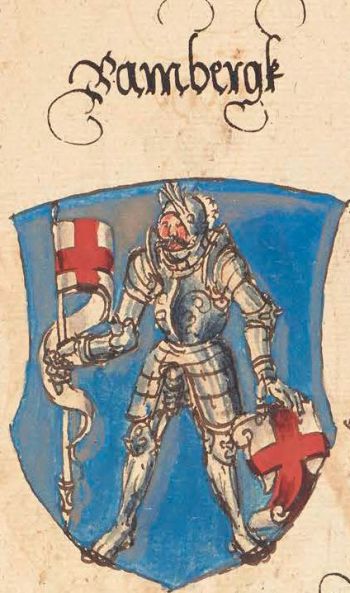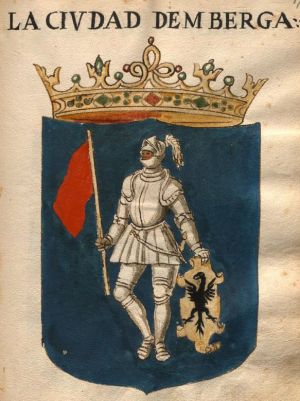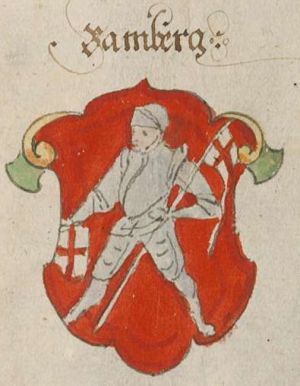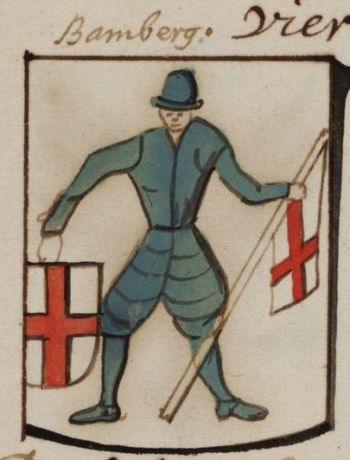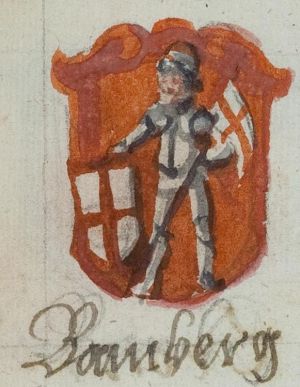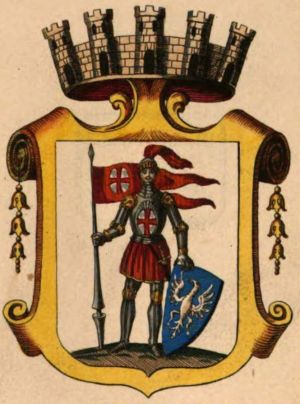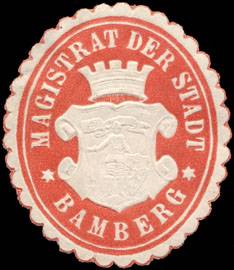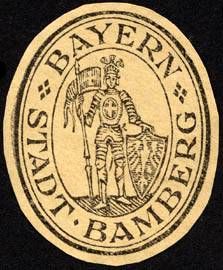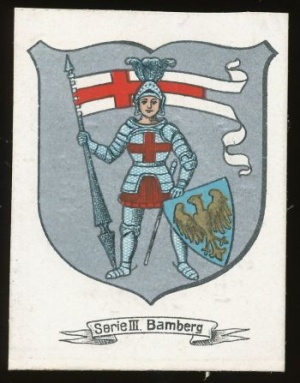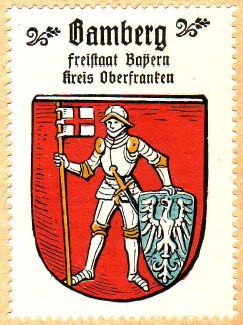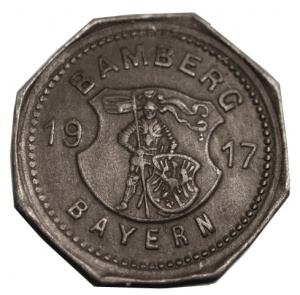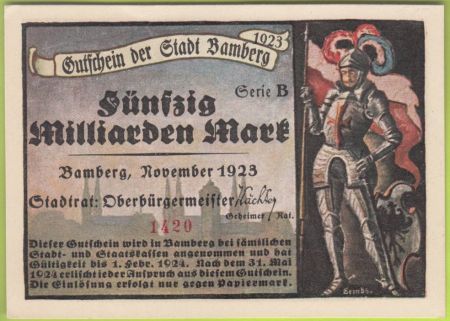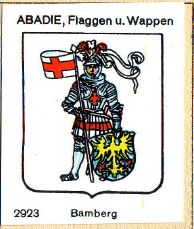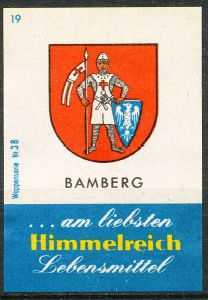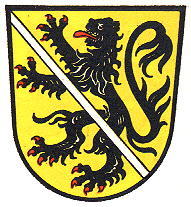Bamberg: Difference between revisions
Knorrepoes (talk | contribs) m (Text replacement - ". ===Origin/meaning===" to ". |- |'''English''' | {{blazon wanted}} |} ===Origin/meaning=== ") |
Knorrepoes (talk | contribs) m (Text replacement - "===Official blazon=== *(de) " to "{| class="wikitable" |+Official blazon |- |'''German''' | ") |
||
| Line 8: | Line 8: | ||
[[File:bamberg.jpg|center|Wappen von {{PAGENAME}}]] | [[File:bamberg.jpg|center|Wappen von {{PAGENAME}}]] | ||
= | {| class="wikitable" | ||
|+Official blazon | |||
|- | |||
|'''German''' | |||
| | |||
In Rot ein stehender Ritter in silberner Rüstung mit einem roten Kreuz auf der Brust und einem silbernen Langschwert am Gurt; in der Rechten eine Lanze mit silbernem Fähnlein, darauf ein rotes Kreuz, die Linke gestützt auf einen blauen Schild mit silbernem Adler. | |||
|- | |- | ||
|'''English''' | |'''English''' | ||
Revision as of 07:24, 5 July 2022
This page is part of the German heraldry portal Deutsche Wappensammlung |
Heraldry of the World |
|
German heraldry:
|
Selected collector's items from Germany:
|
BAMBERG
State : Bayern
Urban District (Kreisfreie Stadt) : Bamberg
Additions : 1970 Hallstadt (partly); 1972 Bug, Gaustadt, Wildensorg
| German |
In Rot ein stehender Ritter in silberner Rüstung mit einem roten Kreuz auf der Brust und einem silbernen Langschwert am Gurt; in der Rechten eine Lanze mit silbernem Fähnlein, darauf ein rotes Kreuz, die Linke gestützt auf einen blauen Schild mit silbernem Adler. |
| English | No blazon/translation known. Please click here to send your (heraldic !) blazon or translation |
Origin/meaning
The arms were granted in 1953 and are based on the oldest known seal, known since 1211, see below.
| The seal of Bamberg from 1211. |
The knight is St. George, the patron saint of the city, the small shield shows the arms of the Counts of Andechs-Meranien, who ruled the city in the 13th century. In the 15th and 16th century the seal sometimes showed Emperor Heinrich II instead of St. George. From the late 15th century the composition was also used as arms of the city. Previously the city used the lion of the Abbey and State of Bamberg (see below) as city arms. Even though the composition of the arms thus did not change since the 15th century, the colours of the eagle changed regularly.
| The arms in a manuscript from 1514 |
The arms in a manuscript from 1565 |
| The arms in a 16th century Spanish manuscript |
The arms in a 17th century manuscript |
The arms in the Wapen- en Vlaggenboek van Gerrit Hesman (1708) |
The arms in a 16th century manuscript |
| The arms by Tyroff (1835) |
Seal from around 1900 |
| Seal from around 1900 |
The arms in the Continentale Verlags-Anstalt album, +/- 1910 |
| The arms by Hupp in the Kaffee Hag albums +/- 1925 |
The arms on emergency money (1917) |
| The composition of the arms on emergency money (1923) |
The arms in the Abadie albums |
| The arms on a 1960s matchox label |
The former independent State of Bamberg, ruled by the Archbishops of Bamberg, was a small, but quite powerful part of the German Empire. The bishops owned many towns and villages, and the arms of the State of Bamberg can be found in many arms in Bayern.
The arms of the State are shown below:
Contact and Support
Partners:
Your logo here ?
Contact us
© since 1995, Heraldry of the World, Ralf Hartemink 
Index of the site
Literature : Stadler, 1990.


